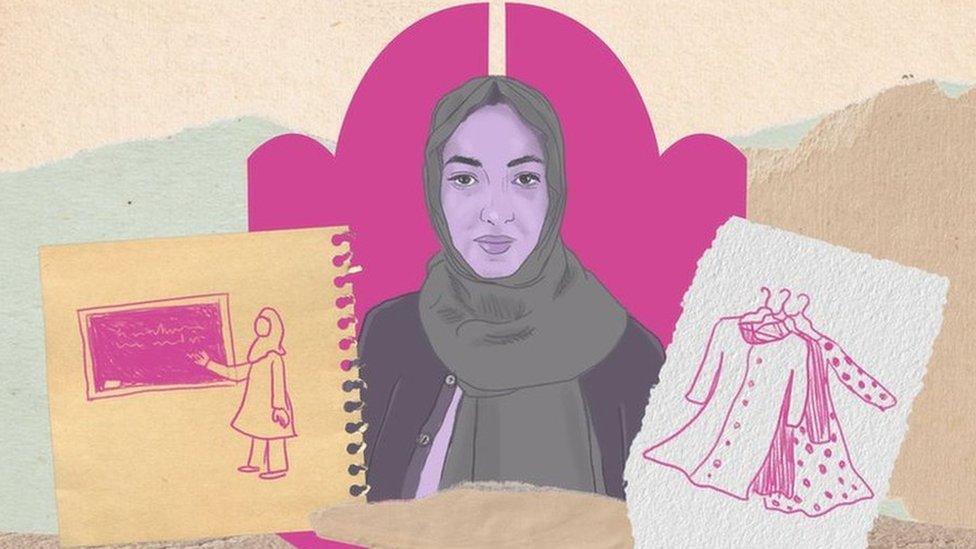'I am an Afghan public prosecutor but I can't do the job I love'
- Published
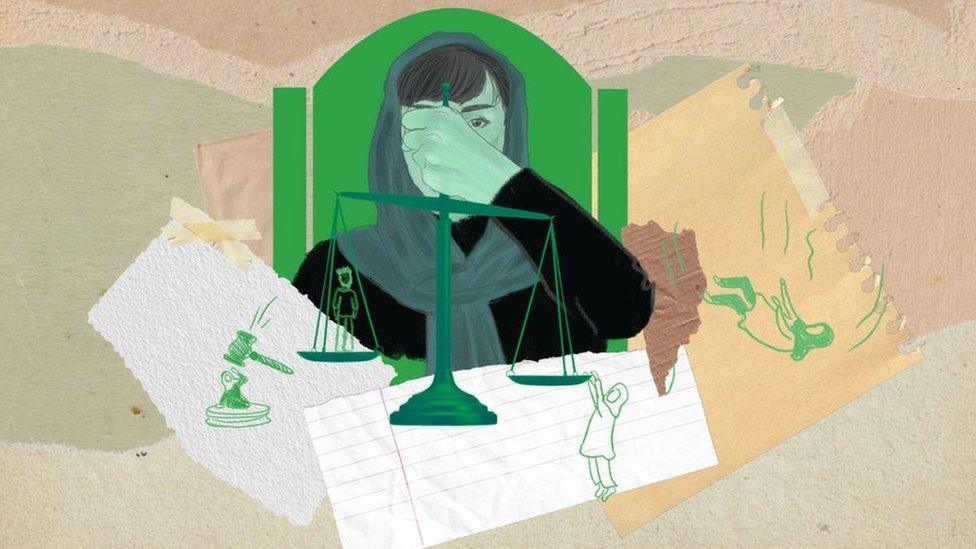
As part of the BBC's 100 Women series, we asked four women leaders to exchange letters with four women from Afghanistan who share their profession or passion.
Here, Baroness Helena Kennedy QC hears from Masouma, a former public prosecutor in Afghanistan, who writes about her fears for her future and the future of women in her country. We have changed Masouma's name for her safety.

Masouma is a public prosecutor, and worked in the Attorney General's Office. She is one of the many Afghan women lawyers who is now in hiding.
Dear Helena,
It felt just like any other morning, but that day on my way to work I saw people running towards me desperately. I asked a young man what had happened and he said, "Sister, do not go to work today. The Taliban have entered Kabul." I felt numb. In that moment all my dreams and hopes flashed before my eyes, like I was watching a film of my own future.
I turned around and hurriedly headed back home along with my other colleagues. While walking I couldn't stop thinking, does this mean that all the achievements and struggles of women have vanished in the blink of an eye?
Questions raced through my head: Will I not have the right to work anymore? Will I just have to sit at home? What about my colleagues who are the breadwinners of their families?

I am proud to be a woman public prosecutor who worked in the judiciary, I always strived to serve my people. But now I can't return to the job I love and that consumes my thoughts. With the regime change, there is no hope for a bright future for women in Afghanistan.
Fellow colleagues who worked in the judiciary and attorney offices are trying to leave. It feels like every waking moment we are waiting for our death. Maybe tomorrow it will be my turn.
Women and girls represent half of the world's population. And if they are given opportunities, women can serve their people and country just like men. In the judiciary we were a national asset and the education and knowledge Afghan women have received in the last 20 years should be put to good use.
The international community should take the struggles of working women seriously and support us, so we don't become the victims of history.
As an Afghan woman, I would say that only when there is no discrimination based on ethnicity, language, religion, and gender we will move forward - until all the people of Afghanistan see their place in society.
Masouma


Baroness Helena Kennedy QC has practised criminal law for 40 years. She is Director of the International Bar Association's Human Rights Institute.
Dear "sisters in-law",
It's a term usually used to describe a brother's wife, but for me it describes the special bond of affection I feel for those who share my profession.
Our human rights are meaningless unless there are lawyers to argue our cases and independent judges - women as well as men - to try them. Justice is the fundamental value, yet fundamentalists often seek to destroy it.
The women lawyers and judges of Afghanistan are my sisters. They love the practice of law as I do - and they know that law is critical to a just society and social change, that it sends out messages to wider society about what is acceptable and what is not acceptable. They know that women can never enjoy fulfilled lives if they are forced into marriages, if they are denied access to education, if they are treated as second class citizens and if they experience violence and abuse of all kinds without proper recourse to law.
I have fought on behalf of women in my own country's courts and I have been a law reformer for women and children in my own parliament. Now, much of my work is in the international arena. I wept when extremists assassinated two wonderful women Supreme Court judges in January. It was a foretelling of what was to come. A warning!
When the Taliban took Kabul, I knew a war on courageous women would be declared just for daring to be women who might judge men, who might play public roles and who might not be prepared to be treated as subordinates.

Then I started receiving the calls from some of you. I received messages from women - judges, lawyers and young women's rights activists - and my heart bled. I heard their terror - your terror.
I started the rushed journey of learning about safe houses, secure transportation. chartering planes: the new world of undercover operations. I just wanted them out of harm's way. With my colleagues at the Human Rights Institute we made it our mission to evacuate our sisters-in-law.
Dear colleagues in Afghanistan, dear Masouma, I want you to know that women and men in law around the world are with you. We will raise money to help you leave. We will press our governments to provide you with visas.
You represent for us our own yearnings for a world where men and women can live in freedom and equality, with dignity and mutual respect.
We embrace your courage and we stand by you.
Baroness Helena Kennedy QC

Produced by Georgina Pearce, Lara Owen, Kawoon Khamoosh, Zuhal Ahad, Mahfouz Zubaide. Edited by Valeria Perasso .Illustrations by Jilla Dastmalchi. Additional visuals by Joy Roxas.

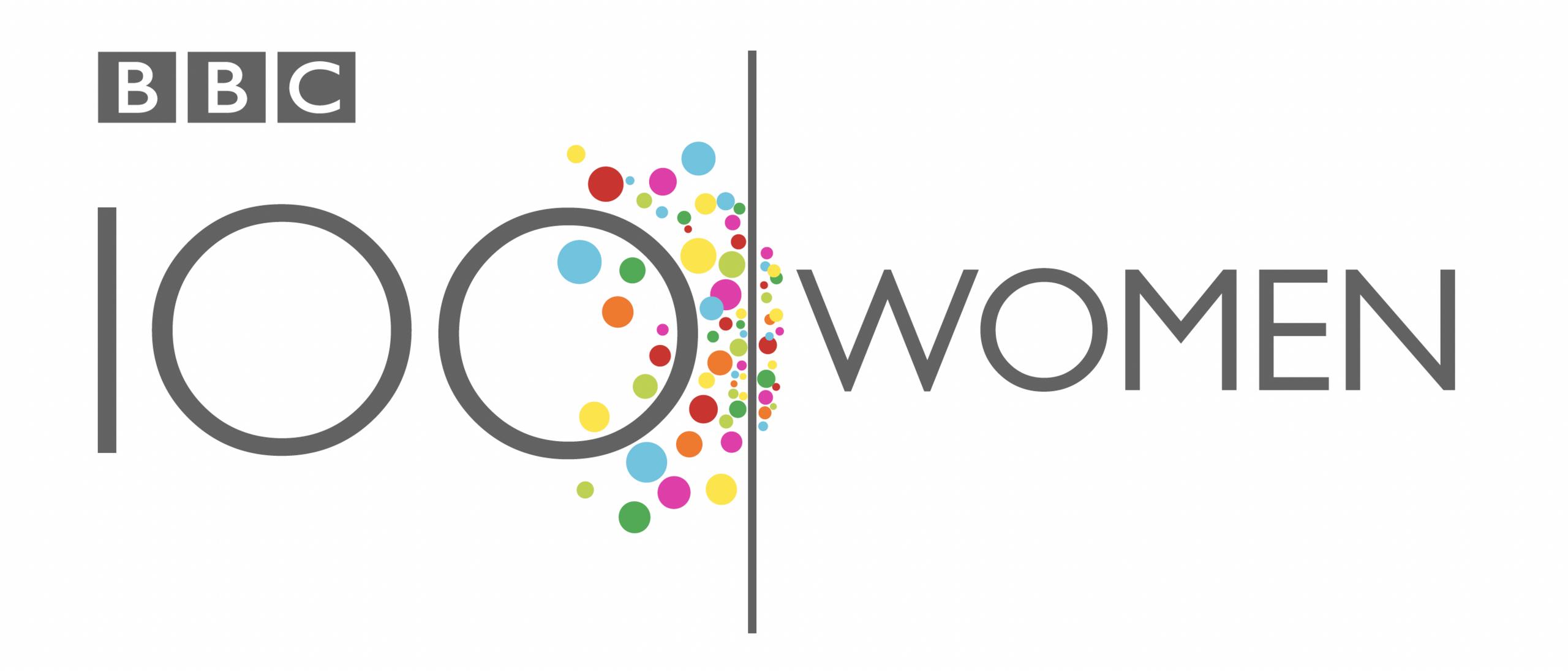
BBC 100 Women names 100 influential and inspirational women around the world every year. Follow BBC 100 Women on Instagram, external, Facebook , externaland Twitter, external. Join the conversation using #BBC100Women.
- Published7 December 2021
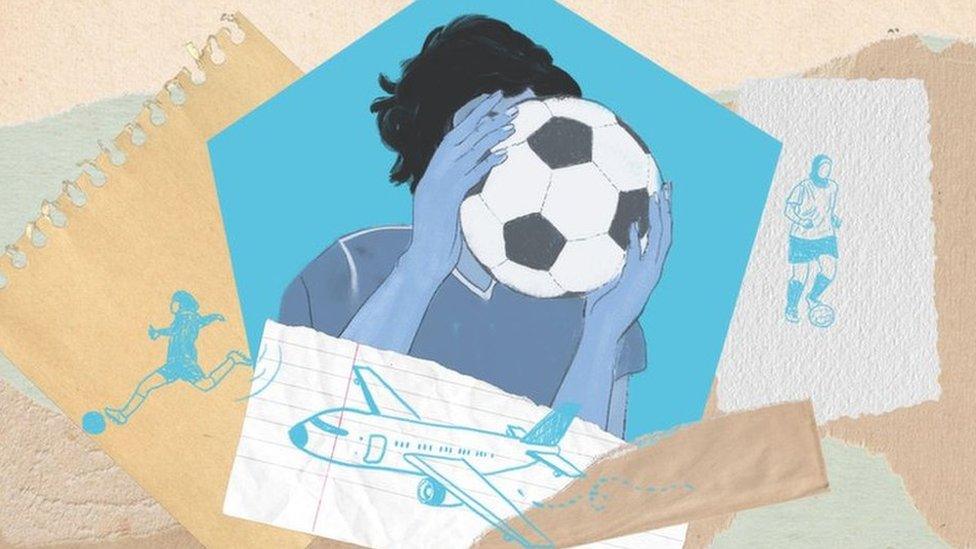
- Published7 December 2021
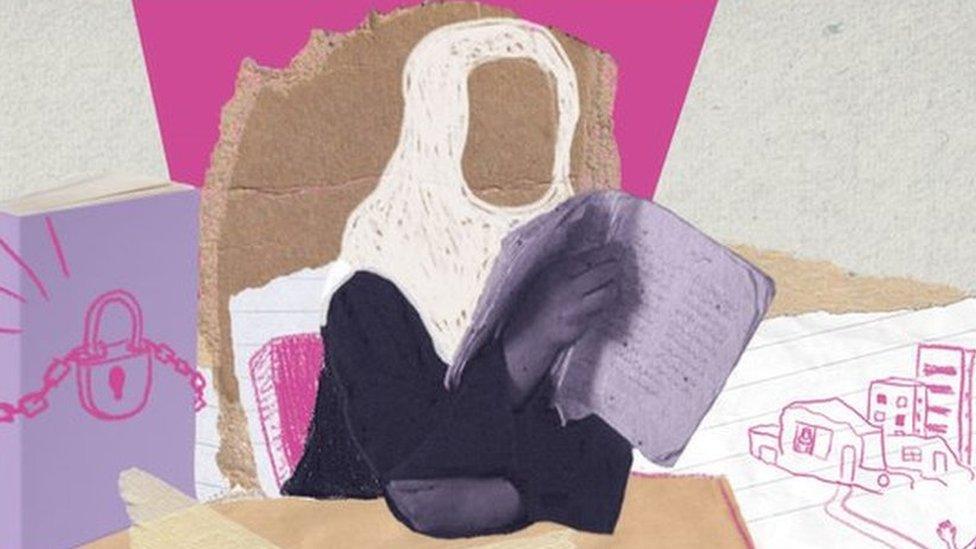
- Published7 December 2021
